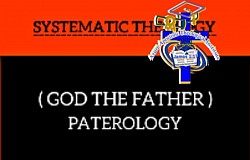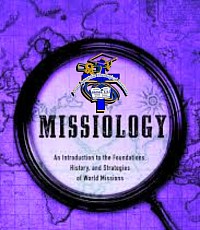Courses Offered
Modules
An Introduction To Theology
• Paterology: God The Father
• Christology: Jesus Christ
• Pneumatology: Holy Spirit
• Angelology: Angels
• Demonology: Satan And Demons
• Bibliology: The Bible
• Harmartiology: Sin
• Soteriology: Salvation
• Ecclesiology: The Church
• Eschatology: Prophecy, The End-times, Eternity Epilogue
Modules
• Lesson 1: Introduction to Leadership and Administration
• Lesson 2: The Biblical and Theological Basis of Leadership and Administration
• Lesson 3: The Nature and Functions of Leadership
• Lesson 4: The Nature and Functions of Administration
• Lesson 5: The Administrative Process: Planning
• Lesson 6: The Administrative Process: Organizing
• Lesson 7: The Administrative Process: Staffing
• Lesson 8: The Administrative Process: Directing
• Lesson 9: The Administrative Process: Evaluating
• Lesson 10: The Administrative Process: Coordinating
• Lesson 11: The Administrative Process: Reporting
• Lesson 12: The Administrative Process: Budgeting
• Lesson 13: The Administrative Process: Communicating
• Lesson 14: The Administrative Process: Decision Making
• Lesson 15: The Administrative Process: Problem Solving
• Lesson 16: The Administrative Process: Conflict Management
• Lesson 17: The Administrative Process: Change Management
• Lesson 18: The Administrative Process: Time Management
• Lesson 19: The Administrative Process: Stress Management
• Lesson 20: The Administrative Process: Team Building
• Lesson 21: The Administrative Process: Leadership Development
Modules
• Prepare Your Soul.
This module emphasizes the importance of living the texts that we preach to others, and cultivating a personal relationship with God through prayer, worship, and obedience.
• Plan Your Preaching.
This module helps the preacher to determine how to preach through God's Word in a systematic and balanced way, and to choose the appropriate sermon form, style, and length for each occasion.
• Get the Big Idea.
This module teaches the preacher how to identify and articulate the main point of a biblical text, and how to craft a clear and compelling sermon statement that captures the essence of the message.
• Organize Your Sermon.
This module guides the preacher to structure the sermon in a logical and coherent way, and to use transitions, introductions, and conclusions effectively.
• Illustrate Your Sermon.
This module shows the preacher how to use stories, examples, analogies, and other devices to illustrate the sermon and make it more engaging, relevant, and memorable for the listeners.
• Apply Your Sermon.
This module instructs the preacher how to apply the sermon to the specific needs, situations, and challenges of the audience, and how to motivate them to respond to God's Word in faith and obedience.
• Deliver Your Sermon.
This module advises the preacher on how to deliver the sermon with confidence, passion, and clarity, and how to use voice, gestures, eye contact, and other elements of nonverbal communication effectively.
• Evaluate Your Sermon.
This module encourages the preacher to evaluate the sermon objectively and constructively, and to seek feedback from others to improve the preaching skills and ministry.
• Develop Your Preaching Skills.
This module provides the preacher with some practical tips and resources to develop the preaching skills and to grow as a preacher and a follower of Christ.
- Introduction to Missiology
- Biblical Basis of Missions
- Theology of Missions
- History of Missions
- Applied Missiology
Study Modules
• The Birth of the Church A few details about each of the original twelve Apostles.
• Global Dissemination of the Gospel: Apostolic Outreach.
• Overcoming Challenges in Apostolic Ministry: Resilience and Solutions of the Early Apostles.
• Contrasting Eras: A Comparative Analysis of New Testament Apostolic Ministry and Modern Church Movements.
• Translating Apostolic Wisdom: Applying Teachings and Examples to Contemporary Life.
• Bridging Old and New Testaments: The Apostles’ Interpretation and Integration of Old Testament Scriptures.
• Strategies Employed:
• Exploring the Interconnected Themes and Messages of the Apostolic Epistles.
• The main themes and messages of each apostolic epistle.
• Apostolic Theology: Development and Responses.
• Apostolic Relationships: Interactions and Dynamics.
• The Apostolic Ethics.
• Examples of Apostolic Responses to Cultural and Ethical Issues.
• Apostles' Anticipation and Preparation for the Second Coming
• Roles of Women in the Apostolic Ministry and Church.
• The council in Jerusalem.
• False teachers confronted by the apostles.
• Apostolic and Prophetic Actions: Unveiling the Hidden Truths.









